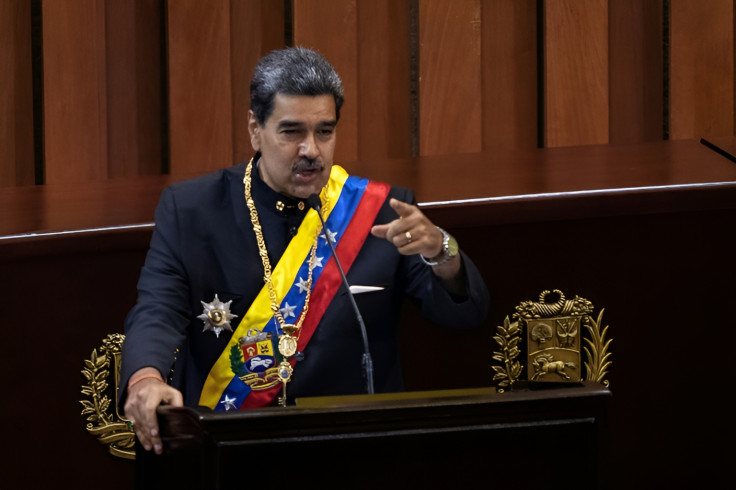
Venezuelan President Nicolás Maduro is escalating his rhetoric as the country's presidential elections get closer, now warning society risks a "fratricidal civil war" and a "bloodbath" if his party doesn't win.
"If you don't want Venezuela to fall into a bloodbath, into a fratricidal civil war because of fascists, we need to guarantee the largest electoral victory in the history of our people," Maduro said during a speech in Caracas.
It follows similar statements over the past days. Last Thursday he also said the elections will decide whether there is "war or peace, violent protests or calm, a long-term project for our country or being a colony." "Are you ready? I am, I have love for Venezuela, I have experience, I don't even fear the devil. God is with me, he is with us," he said back then.
Aware of the government's reluctance to relinquish power, opposition members have for months been demanding the government engage in negotiations aimed at an orderly transition should they be defeated, a scenario that polls are predicting.
Earlier this month, top opposition leader María Corina Machado said Maduro doesn't have the trust of the Venezuelan people and is resorting to fear and repression to have them fall in line. However, she added, this won't deter voters from rejecting Maduro at the polls and remove Chavismo from power after more than 20 years.
"We're heading toward a delicate transition process and, for Mr. Maduro's own sake, as well as the rest of his structure, I hope he accepts a negotiation process," Machado said during a campaign rally along the opposition's presidential candidate, Edmundo González Urrutia.
"We're going to clean up," added Machado, who has been campaigning alongside González Urrutia after being prevented by the government-friendly Electoral Council from running despite winning a broad primary election last year.
However, observers have warned about the different ways in which the Maduro government could seek to stay in power despite losing. An analysis piece by The New York Times includes disqualifying González or the parties he represents, manipulating the election process to suppress voter participation, or even canceling or postponing the election by citing a fabricated crisis, such as a border dispute with Guyana.
There is also the possibility of outright vote tampering, a strategy previously used in the 2017 election where the results were manipulated, according to the company that provided the voting technology.
Maduro has also ramped up political repression, arresting dozens of opposition members over the past days. Foro Penal, a local human rights NGO, has reported 102 arrests since the start of the election campaign on July 4.
The latest high-profile case was that of Milciades Ávila, head of security for Machado. Perkins Rocha, legal advisor to Machado's party, linked Ávila's detention to an incident on Saturday, July 13, in the state of Aragua. During the incident, several women attempted to attack Machado, but her security team, including Ávila, prevented the assault. Rocha explained that Ávila's "alleged crime" was protecting Machado and González Urrutia from being attacked by a state deputy and a municipal employee.
© 2024 Latin Times. All rights reserved. Do not reproduce without permission.







